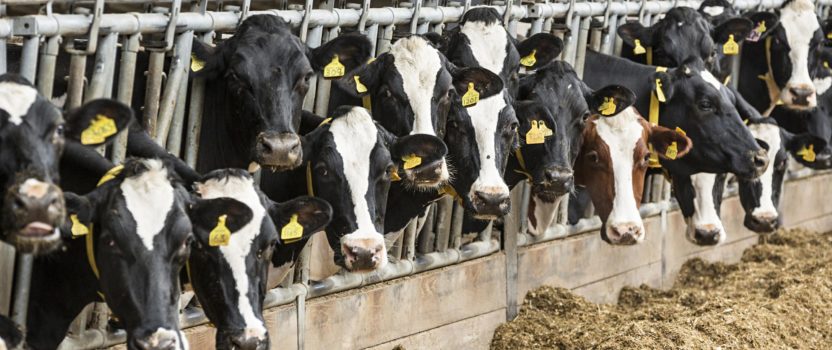8 Great sources of non-dairy calcium
The dairy industry spends a lot of money trying to convince us that milk and dairy products are essential for good health. We’ve been brainwashed into believing that because they contain calcium you need them to help build strong bones and teeth and prevent osteoporosis.
But dairy contains lots of unhealthy things too. What’s more, you don’t need it to fulfill your calcium needs.
The downside of dairy
Dairy products contain two ingredients that are very difficult for us humans to process: lactose and casein. Lactose Intolerance leads to gas, bloating and discomfort and in the China Study, Dr. T. Colin Campbell concluded that casein promotes cancer in all stages of development.
Worse, most dairy cattle are injected with a cocktail of hormones to artificially increase milk production. One of these is IGF 1 (insulin like growth factor 1), which stimulates rapid growth of calves (and humans too) by boosting the division and multiplication of all cells – including the abnormal ones. It’s not surprising that many studies are finding a link between this hormone and various cancers. IGF-1 may also promote decreased insulin sensitivity, type 2 diabetes and increase risk of developing heart disease.
Despite the hype from the dairy industry, you can avoid eating dairy products and still get all the calcium your body needs simply by eating these healthy foods:
- Bok choy: This Chinese leafy green vegetable would appear to be most similar to lettuce: it’s tender, light, watery, crisp and would seem to be low in nutrition density. But just 1 cup of cooked boy choy equals the same amount of calcium as an 8-ounce glass of milk.
- Kale: The beloved “superfood” green vegetable boasts calcium as just one of many minerals found inside its chewy, dense leaves. In 1 ½ cups of cooked kale, you’ll get the same amount of calcium as an 8-ounce glass of milk.
- Turnip greens: Turnips can be used with squash, potatoes and root veggies in winter dishes; don’t throw out their greens! Turnip greens are rich in bioavailable calcium; just 1 cup of cooked greens gives you the calcium of an 8-ounce glass of milk.
- Sea vegetables: Sea vegetables seem to do only good for the body. They flush out toxins and heavy metals from our system and supply ample amounts of trace minerals. Pile your lunch bowl with a large heaping of alaria (or wakame) and kelp for a calcium boost; 4 cups of the seaweed equals the calcium of an 8-ounce glass of milk.
- Tofu: Tofu isn’t as hot as it used to be with health nuts in the ‘90s, but it does still deserve credit when due. With most tofu varieties, just a ½-cup serving has the same amount of calcium as an 8-ounce glass of milk.
- Dried figs: Believe it or not, these dried fruits are an excellent source of dietary calcium. Ten fruits supplies the same amount as an 8-ounce glass of milk.
- Sustainable bony fish: You don’t have to be strictly vegan to do dairy-free. If you ever eat fish, check out Alaskan salmon, sardines and mackerel (all sustainable choices) for a serious calcium boost. A 3-ounce serving contains the same amount of calcium as an 8-ounce glass of milk.
- Dark green leafy vegetables Many dark green leafy vegetables have relatively high calcium concentrations. The calcium in spinach is however, somewhat poorly absorbed, probably because of the high concentration of oxalate. The study revealed that kale, a low-oxalate vegetable, is a good source of bio-available calcium. Kale is a member of the same family that includes broccoli, turnip greens, collard greens and mustard greens. These low-oxalate, calcium-rich vegetables are therefore also likely to be better sources of available calcium.
So don’t let anyone tell you that you need to eat dairy products to get your daily calcium allowance. It’s simply not true. Now you know how to get all the calcium you need – and without any of the nasties!


Leave a Reply
Your email is safe with us.
You must be logged in to post a comment.